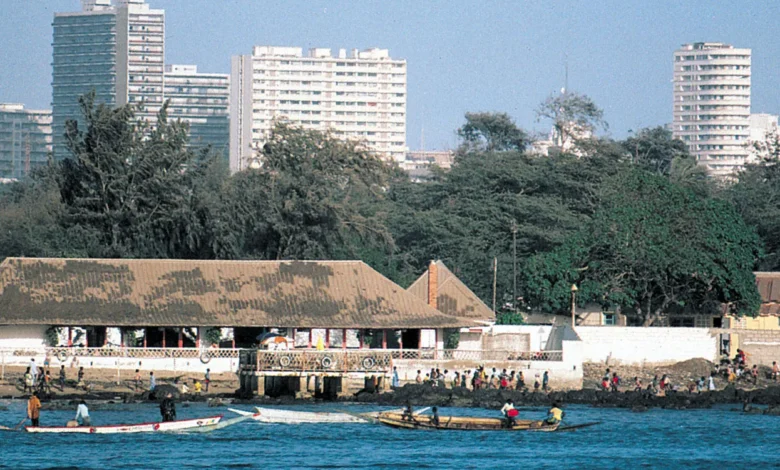
S&P Global Ratings has downgraded Senegal’s long-term sovereign credit rating from ‘B’ to ‘B-’, while keeping a negative outlook, citing a sharp deterioration in the country’s fiscal position.
The downgrade comes after an audit revealed that Senegal’s debt-to-GDP ratio hit 118% in 2024—the highest among African nations in the ‘B’ S&P rating catalogue.
This is an uptick from the 104% debt-to-GDP ratio estimates in February 2024, with debt adjustments since October totaling 8.3 trillion CFA francs (around $13 billion), or 41% of GDP.
S&P now expects Senegal’s public debt to remain elevated, forecasting it at 110% of GDP by 2028, which is over 10 percentage points higher than its May 2025 projection.
The revised 2025 budget points to significantly higher financing needs of 5.7 trillion CFA francs (approx. $10.2 billion), representing 26% of GDP. This includes a 15.8% rise in debt repayments and efforts to clear arrears owed to the private sector, estimated at 2% of GDP.
S&P projects Senegal’s budget deficit in 2025 to be just under 9% of GDP, while the government is targeting 7.8%.
Also Read: S&P Downgrades Kenya’s Rating to B-
Strong Growth, But Limited Fiscal Adjustments
Despite the fiscal concerns, Senegal’s economic outlook remains positive, with real GDP growth expected to reach 8% in 2025.
This will be driven by new oil and gas production from the Sangomar and Greater Tortue Ahmeyim fields, as well as increased gold exports.
The current account deficit is also improving—expected to drop to 11.6% of GDP in 2025, down from 20% in 2022, with the government targeting 9.5%.
Authorities are looking at reducing the fiscal deficit to under 3% of GDP by 2027, in line with West African Economic and Monetary Union (WAEMU) rules.
However, S&P warns that the 2025 amended budget offers limited concrete measures, with most of the deficit reduction relying on strong economic growth rather than structural reforms.
Debt servicing is expected to rise sharply, with $8.8 billion due in 2026, up from 3.3 trillion in 2025.
WAEMU Membership Offers Some Relief
According to S&P, Senegal’s membership in WAEMU should help ease liquidity pressures, as regional banks are potential lenders to the government.
However, the agency warns that without meaningful fiscal reforms, Senegal could face increasing difficulty accessing credit markets and stabilizing its public finances.







What’s Happening i’m new to this, I stumbled upon this I’ve discovered It positively useful and it has aided me out loads. I’m hoping to contribute & assist other customers like its aided me. Great job.
I am glad to be one of several visitants on this outstanding website (:, appreciate it for posting.
Hi there very nice web site!! Man .. Beautiful .. Amazing .. I will bookmark your website and take the feeds additionally…I am glad to seek out a lot of useful information right here in the publish, we need work out extra strategies on this regard, thanks for sharing. . . . . .
Good blog! I truly love how it is simple on my eyes and the data are well written. I’m wondering how I might be notified when a new post has been made. I have subscribed to your RSS which must do the trick! Have a great day!
I have been exploring for a little bit for any high quality articles or weblog posts on this kind of house . Exploring in Yahoo I ultimately stumbled upon this web site. Studying this information So i¦m happy to convey that I have an incredibly just right uncanny feeling I found out exactly what I needed. I so much indubitably will make certain to do not fail to remember this website and give it a look regularly.
Downloaded the Goal11App recently, and I’m not gonna lie, it’s pretty decent. Smooth performance, doesn’t chug my battery. Give it a go, eh? Find it at goal11app
Write more, thats all I have to say. Literally, it seems as though you relied on the video to make your point. You clearly know what youre talking about, why waste your intelligence on just posting videos to your blog when you could be giving us something enlightening to read?
Thanks a bunch for sharing this with all of us you actually know what you are talking about! Bookmarked. Please also visit my website =). We could have a link exchange contract between us!
I’ve learn some excellent stuff here. Certainly value bookmarking for revisiting. I wonder how much attempt you place to create this type of wonderful informative website.